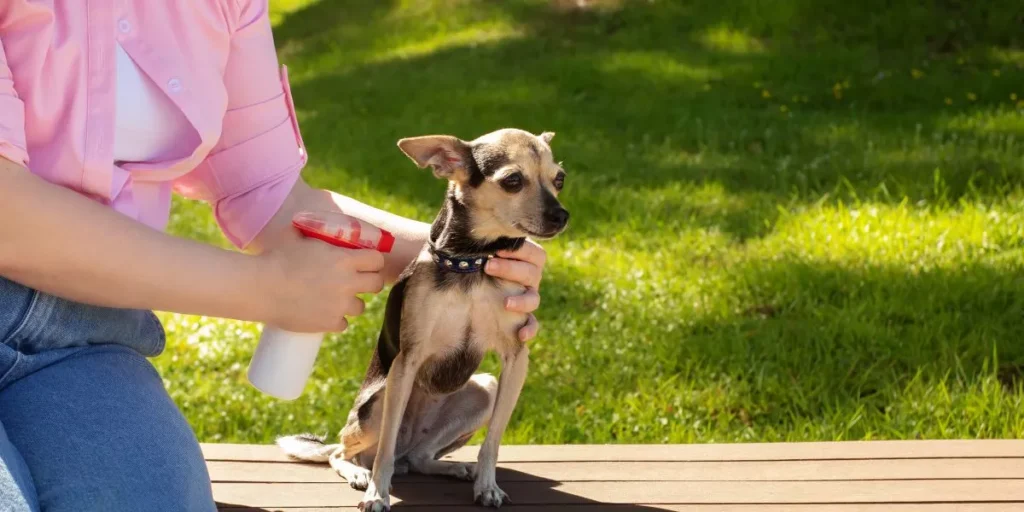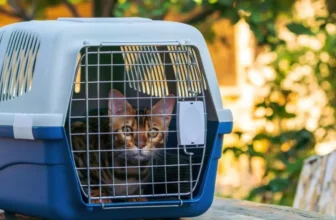
When venturing outdoors with your furry companion, the threat of insects and parasites lurks in the shadows. Ensuring your pet’s safety involves a strategic approach that goes beyond a mere swat at a passing mosquito. By implementing proactive measures and making informed choices, you can shield your pet from potential harm. From tick prevention to yard maintenance, every step you take plays a crucial role in safeguarding your pet’s well-being. So, how can you equip yourself to combat these unseen foes and provide your pet with a worry-free outdoor experience?
Understanding Common Pet Parasites
To protect your furry friend from potential health risks, understanding common pet parasites is crucial. Parasites like fleas, ticks, and worms can pose serious threats to your pet’s well-being if left untreated. Fleas are tiny insects that can cause itching, skin allergies, and even transmit diseases. Ticks are another common parasite that can carry dangerous illnesses like Lyme disease. Regularly checking your pet for these parasites after outdoor adventures is essential.
Furthermore, internal parasites like roundworms, hookworms, and tapeworms can also affect your pet’s health. These worms can cause digestive issues, weight loss, and in severe cases, even lead to anemia. It’s important to consult with your veterinarian to establish a deworming schedule and prevent infestations.
Essential Preventative Measures
Make sure to protect your pet outdoors by taking essential preventative measures against common parasites and health risks. One of the most crucial steps is to keep your pet on a regular preventative medication schedule recommended by your veterinarian. These medications can help protect your pet from fleas, ticks, heartworms, and other parasites. Additionally, ensure your pet is up to date on vaccinations to prevent diseases like Lyme disease and Leptospirosis.
Regular grooming is another key preventative measure. Brushing your pet regularly can help you spot any signs of fleas, ticks, or skin issues early on. Keep your yard clean by removing any standing water, trimming tall grass, and regularly mowing the lawn to reduce the risk of mosquitoes and ticks.
When going for walks or hikes, avoid areas known to be infested with ticks and fleas. If you live in a high-risk area, consider using tick and flea collars or topical treatments recommended by your vet. By taking these essential preventative measures, you can help protect your pet from insects and parasites while enjoying the outdoors together.
Choosing the Right Insect Repellents
When considering protecting your pet outdoors, it’s important to choose the right insect repellents to safeguard them from potential risks. Not all insect repellents are safe for pets, so be sure to select products specifically designed for use on animals. Look for repellents that are labeled as safe for pets and follow the instructions carefully.
Avoid using DEET-based products on your pet, as they can be toxic when ingested or absorbed through the skin. Instead, opt for natural alternatives like citronella, eucalyptus, or cedar oil-based repellents, which are safer for your furry friend. Before applying any repellent to your pet, do a patch test to ensure they don’t have a negative reaction.
Remember to reapply the repellent as directed, especially if your pet is outdoors for an extended period. By choosing the right insect repellents, you can help protect your pet from pesky bugs and potential health issues.
Creating a Safe Outdoor Environment
Consider the layout of your outdoor space to ensure a safe environment for your pet. Start by inspecting the perimeter for any gaps or openings where your pet could escape. Secure fences and gates to prevent them from wandering off. Check for any toxic plants or substances that your pet could ingest and remove them promptly. Provide shaded areas where your pet can rest and access to clean water at all times to prevent dehydration.
When setting up your pet’s outdoor area, create designated play zones away from potentially dangerous areas like pools or ponds. Ensure that your pet’s shelter is well-ventilated, insulated, and elevated off the ground to protect them from extreme weather conditions and pests. Regularly inspect the outdoor space for any signs of insect or parasite infestation and promptly address any issues.
Conclusion
In conclusion, protecting your pet from insects and parasites outdoors is vital for their health and well-being. By following preventative measures, choosing the right repellents, and creating a safe outdoor environment, you can help keep your pet safe from common parasites like fleas, ticks, and worms.
Regular grooming, inspections, and yard maintenance are key to ensuring your pet stays healthy and happy. Remember, prevention is key in keeping your furry friend protected from outdoor pests.
- Powerful Mosquito Defense: Protect your space with Virine’s advanced electronic mosquito repeller, creating a 30ft mosqu…
- Compact and Portable: Lightweight and rechargeable, this repeller is perfect for on-the-go use — indoors, on your patio,…
- Natural, Plant-Based Formula: Our mosquito repellent refills use plant-derived ingredients, offering an alternative to t…
- Long Lasting Effective – One mosquito repellent balls remain effective 30-60 days and covers up to 120 sq ft, deter mosq…
- Keep Mosquito Away Naturally – Contain blend of effective essential oils, our mosquito repellents gives 100% natural pro…
- Repel Mosquitoes for Indoors & Outdoors – You won’t see annoying mosquitos in your house any more. Perfect for patio, de…
- 3-count bottle of tapeworm dewormer for cats
- Easy effective way to remove common tapeworms in cats
- Tablets may be crumbled and mixed with food or taken by mouth
- The ONLY over-the-counter canine dewormer that treats ALL 4 major intestinal parasites in dogs
- Pre-measured pouches make it EASY to give the RIGHT dose based on your dog’s weight
- Safe for all breeds of dogs, puppies at least 6 weeks of age, pregnant females and older dogs
- Trusted for over 15 years, Vectra Large Cat monthly treatment & prevention protects cats over 9 lbs. and 8 weeks of age …
- Vectra for Cats & Kittens kills fleas through contact. Fleas don’t have to bite to die.
- Vectra for Cats & Kittens not only kills adult fleas, it breaks the flea life cycle.
- FLEA AND TICK PREVENTION FOR DOGS: Keep your canine companion protected year-round with these easy-to-administer soft ch…
- HEALTH AND IMMUNE SUPPORT: Elevate your dog’s wellness with these chewable supplements designed to bolster their immune …
- TASTY DUCK-FLAVOR CHEWS: Treat your dog while effectively administering their flea treatment with these delicious duck-f…
- K9 Advantix II Extra Large Dog 30-day treatment & prevention protects dogs over 55 lbs. from fleas, ticks, mosquitoes, b…
- Kills fleas within 12 hours of application
- Vet-recommended formula kills & repels on contact so fleas don’t have to bite your dog to die
- K9 Advantix II Extra Large Dog 30-day treatment & prevention protects dogs over 55 lbs. from fleas, ticks, mosquitoes, b…
- Kills fleas within 12 hours of application
- Vet-recommended formula kills & repels on contact so fleas don’t have to bite your dog to die












